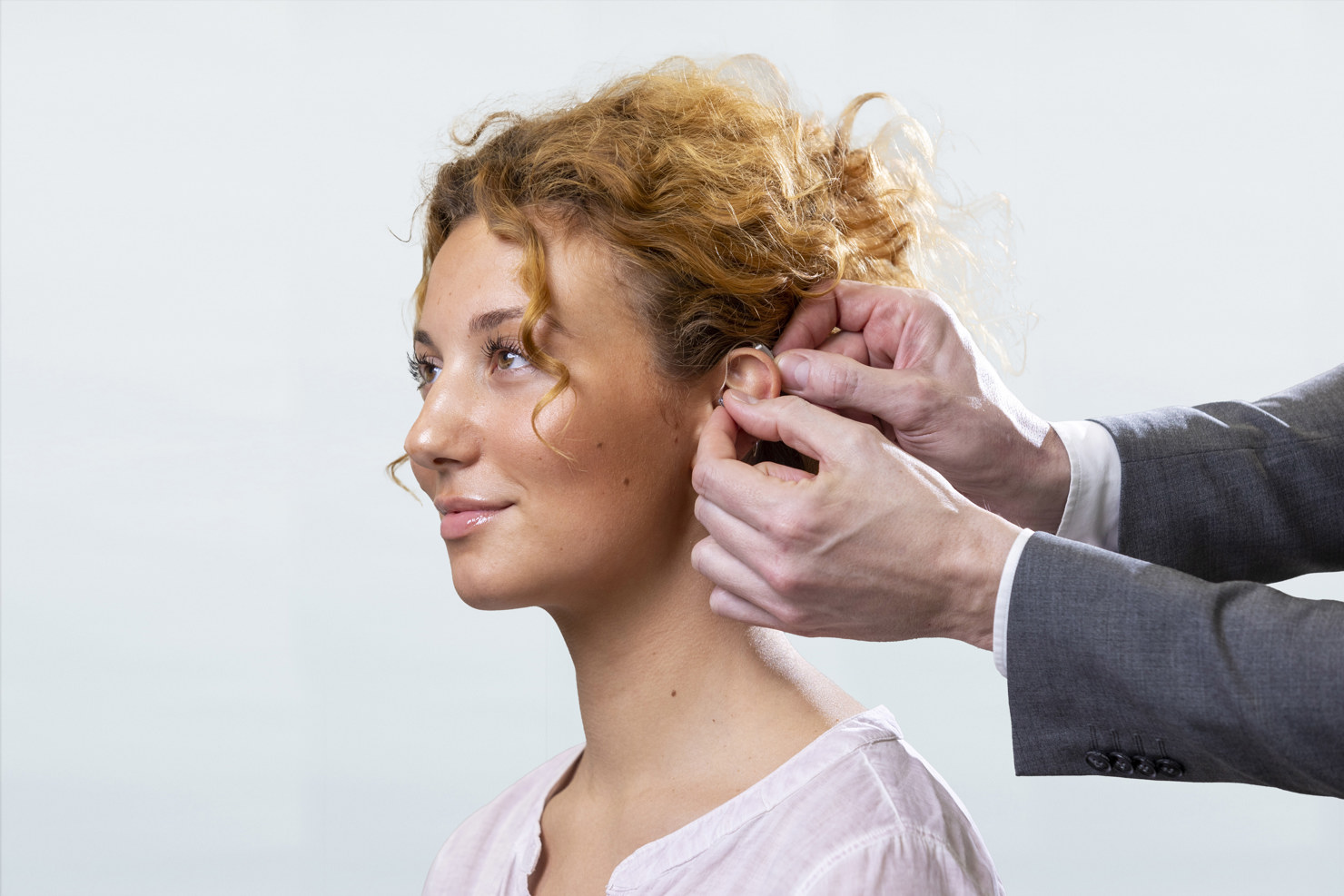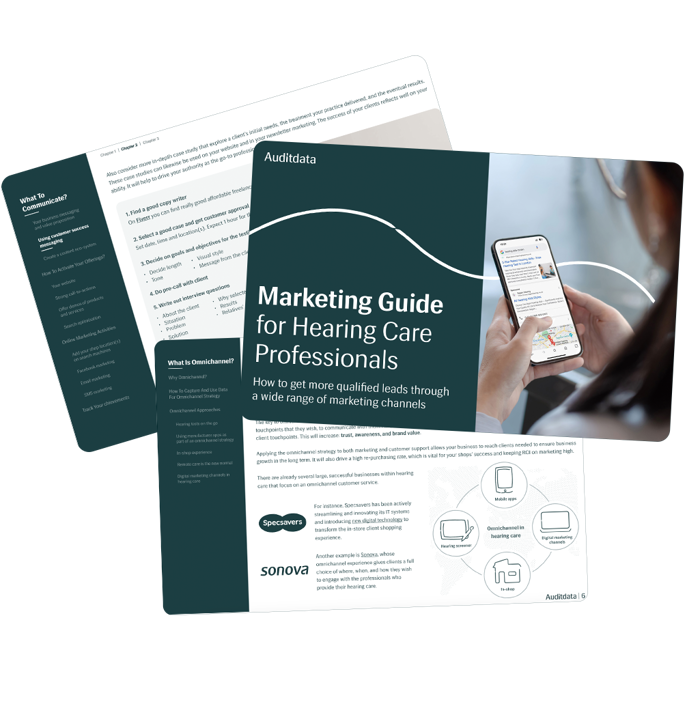
People are repeatedly told to take care of their physical health – encouraged to have regular checkups with their general practitioner, and get important screenings like colonoscopies and mammograms. They’re also encouraged to prioritize their mental health, managing stress through exercise, journaling, meditation, and therapy, as needed.
However, there isn't nearly enough focus on the importance of hearing health, even though it impacts more than “just the ears” and is a critical part of our overall well-being. Hearing clinics – and hearing care professionals – can be instrumental in promoting hearing health and driving key behaviors, like getting regular hearing exams, using hearing protection in loud environments, and using hearing aids, cochlear implants, and other solutions to treat hearing loss.
Hearing Health Impacts More than “Just” The Ears

Despite growing awareness of how untreated hearing loss can impact overall health, a surprisingly low number of people are taking action. Surprisingly, even among those who consider hearing health to be “extremely important,” only 23% have had their hearing tested in the past five years. In fact, people are three times as likely to have their vision tested vs. their hearing.
It is important to remind your patients, prospects, and community members that healthy hearing:
- Improves communication and social engagement.
- Benefits brain functioning and cognitive abilities.
- Helps people understand directions and conversations at work, increasing job security.
- Creates independence and boosts confidence.
- Fosters feelings of security when people can easily hear phone calls, doorbells, emergency notifications, etc.Improves physical, mental, social, and emotional well-being.
Encourage key audiences to get their hearing tested and, if they have hearing loss, wear hearing aids to improve their hearing – and all aspects of their lives!
How to Promote Hearing Health

Raising awareness is just the first step, hearing clinics play a critical role in helping people take action to protect and prioritize their hearing health. By reaching patients both inside and outside the clinic, you can drive greater understanding, encourage early intervention, and make hearing care a routine part of overall health maintenance.
Below, you can find strategies to help your clinic promote hearing health in your community.
1. Promote Key Messages
Start by educating your existing patients and audiences about the importance of hearing health through your clinic’s communications — website, social media, and in-office materials.
People may not give too much thought to their hearing, or how important healthy hearing is to their overall well-being. Educate them about how excessive ear wax could cause muffled hearing, emphasizing that they should see your hearing care professionals for safe, professional earwax removal, and never try to remove it themselves. You can also highlight that noise-induced hearing loss is the only preventable cause of hearing loss — and that simple steps, like wearing hearing protection, can make a lasting difference.
2. Educate People About the Dangers of Untreated Hearing Loss
Build urgency by helping people understand the serious risks of untreated hearing loss, and motivate them to take action. Some may believe that untreated hearing loss only affects their ears, but it can adversely affect people’s mental, physical, social, and emotional health, their moods, relationships, careers, and safety – basically all aspects of their lives. Untreated hearing loss can increase balance issues and fall risks, cognitive decline, and even cardiac problems. Children with untreated hearing loss often experience problems with language development, learning, social skills, confidence and more. To help prevent these risks, encourage regular hearing screenings and ensure patients are properly fitted with hearing aids when needed.
Keep in mind: the link between untreated hearing loss and dementia has been found to be a powerful motivator, with nearly 30% saying knowing this information would make them much more likely to seek treatment for their hearing loss.
3. Generate Awareness About Proper Hearing Protection
People may not think about the negative impacts that loud noises can have on their hearing. Remind them that noise-induced hearing loss is preventable – but only if they take specific actions, like using proper hearing protection in loud environments, avoiding listening to excessively loud music through headphones, etc.
Shockingly, a recent study found that only 8% of U.S. adults reported consistent use of hearing protection at loud athletic or entertainment events. Excessive noise thresholds are defined as anything above 70 dB for a prolonged period or above 120 dB immediately. For comparison, city traffic commonly reaches 80-85 dB, and listening to music through headphones can reach as high as 105 to 110 dB.
4. Be Mindful of the Images and Words You Use
Make your marketing materials inclusive to resonate with a wider range of ages and demographics who might need hearing care. Hearing health is important for people of all ages, yet many hearing clinics create ads that only depict older people needing hearing aids. These images and language won’t resonate with younger demographics that might need your clinic’s services.
When your marketing materials solely talk about “seniors” needing hearing screenings, or show only older adults wearing hearing aids, you risk alienating large populations that might need support from your clinic. In fact, many people with hearing loss are school age or working age. Therefore, incorporate inclusive messaging and photos to emphasize that everyone should prioritize hearing health.
5. Build a Strong Online Presence
Strengthen your website and social media platforms to ensure your clinic is discoverable and your key messages reach a broader audience.
Millions of people search for information online each minute, with vast audiences looking for healthcare information online. In today’s tech-forward climate, your clinic must have a robust online presence. As part of your online presence, promote the importance of hearing health and recommend key actions – like visit your clinic, get regular hearing exams, etc. Have a professional, informative, easy-to-navigate website with pertinent information about hearing health, including signs that someone may have hearing loss, when to get a hearing screening, information about hearing aids and hearing protection, etc.
FREE GUIDE
The Complete Marketing Guide for Hearing Care Professionals
Want to attract more walk-in traffic, convert more prospects into loyal clients, and build lasting relationships? This free guide walks you through the entire customer journey, starting with customer insights and ending with strategies that grow your hearing care business sustainably.

6. Highlight How Hearing Health Fuels Long-Term Career Success
Professional and financial success can be powerful motivators for many patients. Studies show that 55% of professionals would be more likely to seek hearing care, including wearing hearing aids, if it would help them stay in the workforce longer.
This can be an important and successful motivator for many professionals! Explain that 91% of hearing aid users report improvements at work, and people who wear hearing aids to correct their hearing loss report $44,000 higher earnings throughout their remaining working years. With less struggle to hear, people can put more brain power towards other areas that will help them thrive professionally, including creativity, innovation, and collaboration.
7. Overcome Barriers and Stigmas
Address concerns about cost, appearance, and accessibility with compassion and practical solutions.
People’s concerns often include that hearing aids would make them seem old, that they can’t afford them, and that the devices will be too difficult to manage. Younger people may worry that hearing aids will make them look “different” at a time that they desperately want to fit in with their peers. Listen to each patient’s specific concerns and address them professionally and compassionately.
8. Appeal to Their Loved Ones
Studies show that most people would be more likely to seek treatment for hearing loss if their spouses/partners, children, or grandchildren asked them to do so. And nearly half would be likely to visit a hearing clinic/see a hearing care professional if a friend encouraged them. Encourage family members and friends to play a supportive role in motivating individuals to prioritize their hearing health.
9. Build Partnerships with Other Medical Providers
Expand your referral network by partnering with GPs, pediatricians, ENTs, and other healthcare professionals to reach new patients outside your existing database. Contribute content to their websites and social media platforms. Provide information to distribute to patients. Hold events where you speak about hearing health in their offices – or virtually to their patient network.
10. Engage in Community Events and Promotions
Get involved in local fairs, businesses, and schools to further extend your clinic’s presence and raise awareness about hearing health on a larger scale. Visit companies where employees typically work in loud environments – e.g., factories, construction – to discuss the need for proper hearing protection. Give presentations to parents at local schools, discussing the rise of noise-induced hearing loss in young people, and how untreated hearing loss can cause serious problems in children and teens.
Other Blogs You Might Enjoy:

Generational Shifts in Health Attitudes: From Reactive to Preventive Care in Audiology
This blog will help you understand the varying perceptions and demands by generation so you can give each patient exactly what they want and need.

Ensure Your Patients Get the Most Out of Their Hearing Aids
This blog provides tips to maximize the value and performance of hearing aids, so your patients can get the most out of their devices.

Overcoming Hearing Loss Stigma in the Music Industry
This blog explores how musicians are overcoming hearing loss stigma, protecting their hearing health, and continuing to pursue their passions.
Don't Miss Out On the Latest Insights On Audiology
Sign up today to receive exciting updates, tips, and the latest newsletters from Auditdata.